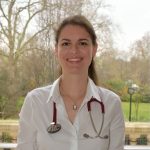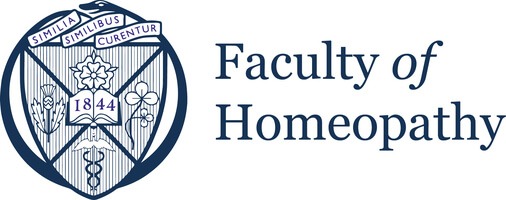Free radicals are molecules that have an unpaired electron. This unstable molecule goes around trying to steal an electron from other molecules, which can cause damage to cells. Antioxidants are molecules that can donate an electron to a free radical, thereby neutralizing it.
Antioxidants are important because they protect our cells from damage. Free radicals are unstable molecules that can damage cells, and antioxidant molecules help to stabilize them.
There are many types of antioxidants, but some of the most significant ones include vitamin C, vitamin E, and beta-carotene.
Antioxidants are found in many foods, including fruits, vegetables, nuts, and grains.
The body needs antioxidants to function properly. They help to keep our cells healthy and prevent damage from free radicals. Free radicals are generated by things like pollution, cigarette smoke, and UV radiation from the sun.
Antioxidants have many health benefits. They can help to protect against heart disease and cancer. They may also help to reduce the effects of aging and improve brain function.
Most people get enough antioxidants from their diet. However, some people may benefit from taking antioxidant supplements.
This is especially true for people who have certain medical conditions or who are at a higher risk for free radical-related diseases.
Free radicals are atoms or molecules that have an unpaired electron in their outermost orbital. These radicals are highly reactive and can cause damage to cells, DNA, and proteins.
Free radicals are produced naturally in the body, but they can also be caused by environmental factors, such as cigarette smoke and UV radiation.
Free radicals are atoms or groups of atoms with an unpaired electron. Electrons like to be in pairs and when they are unpaired, they are unstable and highly reactive. This makes free radicals very reactive and can cause them to damage cells, proteins and DNA.
There are many sources of free radicals, including:
-Exposure to UV radiation from the sun
-Pollution
-Smoking
-Certain medications
-Pesticides
-Certain foods
The body has a natural defence mechanism against free radicals, which is why it is important to consume foods that contain antioxidants. Antioxidants help to neutralize free radicals and prevent them from causing damage.
Simply put, antioxidants are substances that can protect your cells from damage. This damage is caused by free radicals, which are molecules with unpaired electrons. Free radicals are highly reactive, and they can cause oxidative stress, which is a type of cell damage.
There are many benefits to free radicals. They help the body to:
- Fight infection
- Repair tissue
- Detoxify the body
- Improve digestion
- Reduce inflammation
While free radicals are beneficial in moderation, too many can cause oxidative stress, which can lead to cell damage and disease.
Antioxidants are essential because they protect our cells from damage. Free radicals are unstable molecules that can cause cell damage, and they’re all around us. We are exposed to them in the air we breathe, the food we eat, and the water we drink.
Thankfully, there are plenty of foods that are rich in antioxidants.
Free radicals are unstable molecules that can cause damage to cells and are produced when we exercise, and when our bodies break down food or when we are exposed to environmental toxins, such as cigarette smoke or pollution.
Our bodies cannot produce enough antioxidants to protect us from all the free radicals in our environment. This is why it is important to eat foods that are high in antioxidants.
There are many types of antioxidants, but some of the most important ones are:
-Vitamins A, C, and E
-Selenium
-Carotenoids (such as beta-carotene)
-Polyphenols (such as flavonoids)
You can get these antioxidants by eating a variety of fruits and vegetables.
Foods that are particularly high in antioxidants include:
-Berries (such as blueberries, strawberries, and raspberries)
-Cherries
-Beans
-Artichokes
-Peas
-Tomatoes
-Kale
-Spinach
Antioxidants are thought to be good for you because they can neutralize free radicals in your body.
There is some debate surrounding the safety of taking antioxidants, as they can potentially interfere with the body's natural ability to heal itself. Additionally, taking large doses of antioxidants can lead to negative side effects such as stomach upset, diarrhoea, and nausea.
If you are considering taking antioxidant supplements, it is significant to speak with a healthcare professional first to ensure they are right for you.
https://www.ncbi.nlm.nih.gov/pubmed/8602180 https://pubs.niaaa.nih.gov/publications/arh27-4/277-284.htm https://www.ncbi.nlm.nih.gov/pubmed/17709449 https://medlineplus.gov/antioxidants.html http://articles.mercola.com/antioxidants.aspx https://www.ncbi.nlm.nih.gov/pmc/articles/PMC3249911/ http://www.yourdoctorsorders.com/2011/10/anti-oxidants-do-we-need-them/ http://www.drweil.com/vitamins-supplements-herbs/supplements-remedies/stumped-by-oxidative-stress/ http://www.healthchecksystems.com/antioxid.htm http://www.rice.edu/~jenky/sports/antiox.html http://www.livescience.com/54901-free-radicals.html https://en.wikipedia.org/wiki/Radical_(chemistry)

Consultant in General Internal Medicine (GMC reg. number: 7541548) and Specialist in Complementary Cancer Care
MBBS, MRCIM (Spain), MSc Homeopathy, MFHom, Master practitioner in Ericksonian Hypnotherapy and Neurolinguistic Programming, MSc in Nutrition
Integrated medicine Doctor and Holistic Medicine Practitioner



